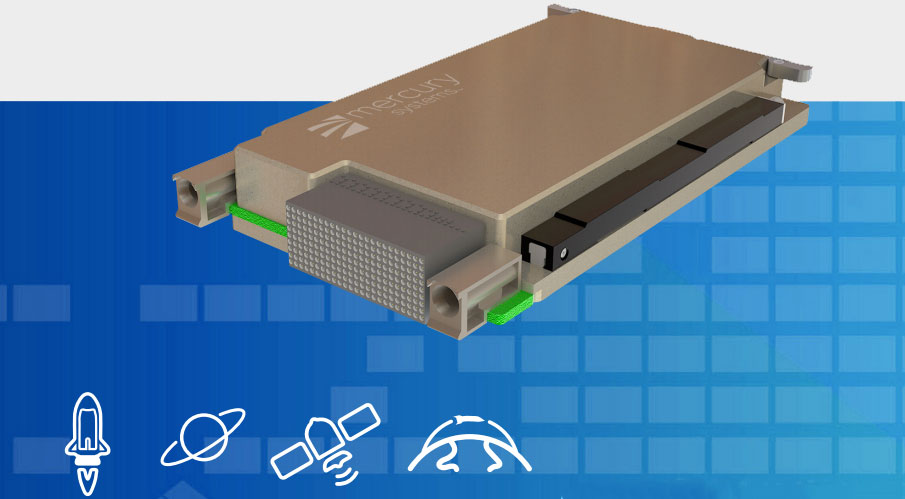Mercury Systems designed a solid state drive for the rigors of space travel
Not just any old SSD will do when you're circling the planet.

If you're planning a trip to outer space (and really, why wouldn't you be?), don't forget to pack a few essentials—you know, things like a space suit, a good camera, some astronaut ice cream, and...a solid state drive? Presumably you'll be doing something high-tech and scientific up there, and if that's the case, Mercury Systems built an SSD that is rated for space travel.
Mercury Systems is known for building rugged and secure electronics for the defense industry, with an emphasis on encryption. However, its new TRRUST-Stor VPX RT (PDF) kicks things up a notch.
The company is billing its new drives as "the first commercial SSD precision-engineered for the harshest possible operating environments leveraging OpenVPX standards."
It's primarily designed for commercial low earth orbit (LEO) satellite applications, though it's not just adept at operating in outer space—it also functions where radiation exposure might occur, including missiles.
Obviously this is not in the discussion for the best SSD for gaming. The specs aren't too shabby, though. It's a 480GB capacity SSD built around "robust large geometry" SLC NAND flash memory. It offers sustained read and write performance of up to 1GB/s, which is around twice that of a standard 2.5-inch SATA drive. Not that you'd be able to stick this in a gaming PC even if you wanted to. Unlike traditional SATA and NVMe drives, this ones uses a serial RapidIO (SRIO) interface.
Still, it's neat to see this kind of stuff, even if the vast majority of us will never actually use it.
Thanks, PCPerspective.
Keep up to date with the most important stories and the best deals, as picked by the PC Gamer team.
Paul has been playing PC games and raking his knuckles on computer hardware since the Commodore 64. He does not have any tattoos, but thinks it would be cool to get one that reads LOAD"*",8,1. In his off time, he rides motorcycles and wrestles alligators (only one of those is true).


